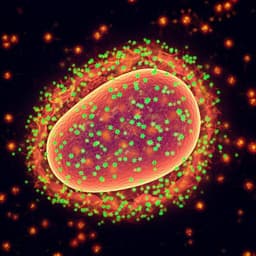
Medicine and Health
Comprehensive characterization of IFNy signaling in acute myeloid leukemia reveals prognostic and therapeutic strategies
B. Wang, P. K. Reville, et al.
Discover the critical role of interferon gamma (IFNy) in acute myeloid leukemia (AML) through groundbreaking research by Bofei Wang and colleagues. Their work reveals that high levels of IFNy are correlated with venetoclax resistance, suggesting new avenues for treatment strategies against immune evasion in AML patients.
Related Publications
Explore these studies to deepen your understanding of the subject.







